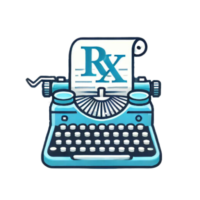A pharmacy residency is a postgraduate training program designed to provide pharmacists with advanced education and hands-on experience in clinical settings. Completing a residency enhances clinical skills, expands career opportunities, and positions pharmacists for leadership roles. This article explores what pharmacy residencies are, their benefits, how to select the right program, and the diverse opportunities available after residency.
What is a Pharmacy Residency?
Definition and Purpose
- Pharmacy Residency: A structured, supervised program that provides in-depth training in various aspects of pharmacy practice.
- Purpose: To develop skilled practitioners with advanced competencies in patient care, leadership, and practice management.
Differences Between PGY1 and PGY2 Residencies
- PGY1 (Postgraduate Year One):
- Focus: General pharmacy practice, including clinical, distributive, and administrative functions.
- Goal: Build foundational skills applicable to various pharmacy settings.
- PGY2 (Postgraduate Year Two):
- Focus: Specialized areas such as oncology, pediatrics, or critical care.
- Goal: Gain expertise in a specific area of pharmacy practice.
Benefits of Completing a Pharmacy Residency
1. Enhanced Clinical Skills
- Direct Patient Care: Hands-on experience managing complex medication therapies.
- Interdisciplinary Collaboration: Work closely with healthcare professionals to deliver comprehensive care.
- Evidence-Based Practice: Apply research to optimize patient outcomes.
2. Improved Job Prospects
- Competitive Edge: Residency graduates are often preferred by employers for advanced roles.
- Advanced Positions: Qualify for clinical specialist positions, academic appointments, and leadership roles.
- Professional Networking: Build valuable connections that can lead to future career opportunities.
Choosing the Right Pharmacy Residency Program
Factors to Consider
- Specialization: Choose a program aligned with your career interests, such as critical care or pediatrics.
- Location: Evaluate geographical preferences, cost of living, and proximity to support systems.
- Program Size and Structure: Consider the number of residents, rotation options, and mentorship opportunities.
Residency Program Directories and Resources
- American Society of Health-System Pharmacists (ASHP): Offers an online directory of accredited residency programs.
- PhORCAS (Pharmacy Online Residency Centralized Application Service): A centralized platform for submitting residency applications.
Application Process: Requirements and Tips
Requirements and Timelines
- Academic Credentials: PharmD degree from an accredited institution.
- Licensure Eligibility: Must be eligible for pharmacist licensure in the program’s state.
- Application Materials: Include transcripts, a curriculum vitae (CV), letters of recommendation, and a personal statement.
- Key Timelines:
- Fall: Prepare application materials and request references.
- December–January: Submit applications via PhORCAS.
- February–March: Participate in interviews.
- March: Match results announced.
Tips for a Successful Match
- Tailor Your Application: Highlight relevant experiences and align your goals with the program’s mission.
- Prepare for Interviews: Practice responses to common questions and develop insightful questions for interviewers.
- Demonstrate Professionalism: Show enthusiasm, punctuality, and courtesy throughout the application process.
Future Opportunities After Residency
Career Paths Post-Residency
- Clinical Pharmacy Specialist: Provide advanced patient care in specialized areas.
- Academic Roles: Teach and mentor at colleges of pharmacy.
- Research Positions: Participate in clinical trials and pharmaceutical research.
- Administrative Roles: Lead pharmacy departments and healthcare organizations.
Leadership and Advanced Practice Roles
- Pharmacy Director: Oversee pharmacy operations and strategic planning.
- Policy Development: Influence healthcare policies at institutional or governmental levels.
- Professional Organizations: Engage with groups like ASHP or APhA to advocate for the profession.
FAQs About Pharmacy Residencies
1. What is the purpose of a pharmacy residency?
A pharmacy residency provides structured training to develop advanced clinical skills, leadership abilities, and expertise in pharmacy practice, preparing pharmacists for specialized or leadership roles.
2. What’s the difference between PGY1 and PGY2 residencies?
PGY1 focuses on general pharmacy practice, building foundational skills. PGY2 offers advanced training in specialized areas such as oncology, pediatrics, or critical care.
3. How do I choose the right pharmacy residency program?
Consider your career interests, desired specialization, program location, cost of living, and mentorship opportunities when selecting a program.
4. How competitive is the pharmacy residency application process?
Residency applications are competitive. A strong application, relevant experiences, and interview preparation can significantly improve your chances of matching.
5. What career opportunities are available after completing a residency?
Graduates can pursue roles such as clinical pharmacy specialists, academic positions, research roles, or leadership positions in pharmacy administration.
6. What will I get paid as a resident?
Graduates can pursue compensation that is approximately half of what you might earn as a pharmacist in the position you seek. For example, $50-55k if a starting salary is $110k for a staff pharmacist at a small hospital.
Conclusion
Completing a pharmacy residency is a transformative step in your career, providing advanced training, opening doors to diverse career opportunities, and laying the foundation for leadership roles. By selecting a program that aligns with your goals and preparing thoroughly for the application process, you can maximize the value of this concentrated learning year. The skills and connections gained during your residency will serve you throughout your pharmacy career.
Further Reading and Resources
- American Society of Health-System Pharmacists (ASHP) Residency Information
- PhORCAS Application Portal
- ASHP Residency Program Directory







